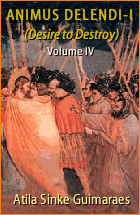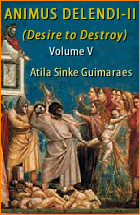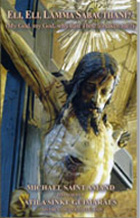Objections
Lay Catholics Cannot Say
the Leo XIII Exorcism
TIA responds:
Hello M.N.,We believe your accusation – laymen cannot pray the exorcism of Leo XIII – is a question de lana caprina.
But for sake of ending this topic once and for all, let us argue that:
- The book of prayers from which we took the Exorcism posted on our website has an Imprimatur dated January 3, 1958 by Bishop Antonio de Castro Mayer of Campos, Brazil, as you may see in the photocopy below at right.
- The text we reproduced has specified the parts to be said by priests and by laymen, which obviously supposes that the latter can say it.
- This text of Exorcism was being said by both priests and laymen since its promulgation by Leo XIII in 1890, until the alleged prohibition by Card. Ratzinger in 1985, that is, it was said for 95 years, and only in the post-Vatican II period was there any talk of a ban.
- Now in January 2023, you sent us an opinion of a adviser for EWTN who affirms: “In September of 1985 (AAS) Cardinal Ratzinger rescinded the permission for both laity and non-exorcist priests to proceed with any kind of exorcism, something which also applies to the recitation of the Exorcism of Leo XIII.” However, you did not provide any document.
- You argued that this “is the current Catholic teaching,” implying that Catholic teaching changes with the times. This is a proposition condemned as modernist by St. Pius X, among other Popes (cf. Pascendi § 28).
- If you would have argued that it is a question of Canon Law and human prudence that requires some changes according to the needs of the Church and of the souls to accommodate the times, we would answer that the “new teaching” you present is quite imprecise.
First, because of the anonymous character of the sources: you did not sign your name in the two emails you sent us; the adviser you quote is also anonymous; it is not clear why we should take his interpretation of Card. Ratzinger’s document as final since neither you nor him offered the textual prohibition by Card. Ratzinger.
Second, supposing that the text of Card. Ratzinger is objectively referred to and the counselor is correct in his interpretation, he and Card. Ratzinger would be forbidding “any kind of exorcism,” a large gamut of actions which would include the following types of exorcism:
- Our Lady could not fulfill God’s mandate to crush the head of the Serpent – the Devil – a directive solemnly established by Him when the Serpent induced our first parents to sin, as described in Genesis (3:15) since she is a laywoman and not a priest authorized to make exorcisms.
- All the use by laymen of Mary’s name to expel the Devil would be forbidden since 1985.
- According to the EWTN argument you quoted interpreting two passages of the Scriptures, St. Michael the Archangel himself would not have power over the Devil and, therefore, should not be invoked to expel him.
If we generalize this affirmation we see that you also deny that any good Angel would have the power to expel devils, which presupposes a new doctrine according to which all the good Angels would be powerless by nature. Instead, the Devil and the bad angels would be powerful by nature to the point that none of them could be defeated or expelled from a person or ambience by the good Angels.
Independent of the obvious heterodoxy of this thesis, such an affirmation per se (in its formal logic) is blatantly contradictory and ludicrous, difficult to be understood by any rational person. - Laymen could not use the Cross against the Devil or make the Sign of the Cross to expel him from their presence and homes because they would not have an exorcist’s power to do so.
- Likewise, relics of Saints could not be used against the Devil by laymen.
- The medal of St. Benedict with the letters VRSNSMVSMQLIVB and its famous formula for exorcism “Vade retro Satana, non suade mihi vana, sunt mala quae libas, tu ipse venena bibas” [Begone Satan, do not suggest vain things to me, What you offer me is evil, Drink your own poison] would be also forbidden for laymen.
- The passage of the Scripture, which reports David expelling the Devil from Saul (1 Kings 16:14-23) by playing the harp and singing the Psalms, presupposes that there are other actions that are exorcistic per se, as we can read in numerous Saints and Fathers of the Church reported by Fr. Cornelius a Lapide (Commentaria in Scripturam Sanctam, vol. 3, pp.367-371). This enormously rich gamut of exorcistic actions would also be forbidden by the EWTN adviser and Card. Ratzinger.
- We could continue to list many more exorcist prayers and actions recommended by the Church for all faithful that would be forbidden according to you and your EWTN adviser.
- Whoever would forbid these acts of exorcism against the Devil would be going against the doctrine of the Church and her Tradition.
- Our Lady could not fulfill God’s mandate to crush the head of the Serpent – the Devil – a directive solemnly established by Him when the Serpent induced our first parents to sin, as described in Genesis (3:15) since she is a laywoman and not a priest authorized to make exorcisms.
- Another point to consider: We are not sure whether or not Card. Joseph Ratzinger believed in the Devil as a person. Indeed, if we take into consideration the thoughts of Fr. Hans Urs von Balthasar, who was Benedict XVI’s as well as John Paul II’s mentor, the Devil and the bad angels most likely would not be persons but cosmic forces acting over the world. (1)
If Card. Ratzinger actually did not believe in the Devil and bad angels as persons, he would be adopting a non-Catholic “new doctrine,” and consequently his prohibition about exorcisms would be null and void. - If the EWTN counselor and Card. Ratzinger want their words of prohibition to be interpreted within the boundaries of Catholic sense or the sensus fidelium, they should make a simple distinction between two different types of exorcisms:
- One type of exorcism is the official Exorcism made by those who received the Minor Order of Exorcist. This Order, which is a Sacramental that participates of the Sacrament of Holy Orders, allows an exorcism to be made officially in the name of the Church, and the exorcist – based on this investiture – has an imperative power over the Devil. We suggest that it be called a
constitutive exorcism or an imperative exorcism, depending on whether it is made over an inanimate object or a person. The first case are the exorcisms of infested houses, properties or other objects. The second case are the exorcisms of persons or group of persons possessed by the Devil.
- Another type of exorcism is the command given by a faithful, who did not receive the Order of Exorcist, using a Cross, a blessed Rosary, a relic of a Saint, Holy Water or other Sacramental, to the Devil to leave a place, an object or a person. This is a command that has the character of a prayer to God or to the Most Holy Virgin Mary or to St. Michael or to any other Saint to expel the Devil who is impeding, disturbing or infesting the actions the faithful is performing for the salvation of his soul, the glory of God and the exaltation of Holy Mother Church. This command given to the Devil has the characteristic of a prayer, which would justify that it be called an invocative exorcism.
- One type of exorcism is the official Exorcism made by those who received the Minor Order of Exorcist. This Order, which is a Sacramental that participates of the Sacrament of Holy Orders, allows an exorcism to be made officially in the name of the Church, and the exorcist – based on this investiture – has an imperative power over the Devil. We suggest that it be called a
constitutive exorcism or an imperative exorcism, depending on whether it is made over an inanimate object or a person. The first case are the exorcisms of infested houses, properties or other objects. The second case are the exorcisms of persons or group of persons possessed by the Devil.
- An analogous distinction is made by the Church regarding blessings. There are constitutive blessings made by the priest over objects or persons and there are invocative blessings made by laymen (see here).

Since this prohibition corresponds neither to the mind of the Church nor to the purpose of the exorcism, we disregard it and continue to follow what the Church has taught us for over a century before Progressivism – this new version of Modernism – invaded and took over the highest positions of Holy Mother Church.
Cordially,
TIA correspondence desk
Footnote 1. In fact von Balthasar wrote in his work The Theology of History: “Human history broadens out into cosmic history, and thus corresponds to the present-day view of natural science and dialectical materialism, but equally to the Pauline doctrine and to the Apocalypse. Now then, this history must count on an extended range and interplay of forces. While materialism sees mankind’s progress as determined by sociological and economic needs, the New Testament considers cosmic powers, whose influence over the history of humanity could only be felt in the most disturbing manner if the living faith in the victory of Christ over these forces were not the efficacious banner raised in the combat with them.
“St. Paul calls them by the name of powers, dominions and principalities, ruling principles and perhaps also elements. He attributes to them a nature related to that of the angels, to some extent identical or comparable to with theirs. These powers, which influence the history of the world, are too deeply embedded in the New Testament conception of salvation for us to simply disregard them by qualifying them as ideas of another era.
“As much as the existence of these powers appear to be certain, their nature remains incomprehensible to us: they fluctuate between spiritual and personal powers and impersonal powers, between good and evil or indifferent powers, between existence as material forms-of-being within the world and in some sense non-material forms-of-being beyond the world.
“The only thing clearly taught is that some domains of the world are attributed by our time to the mediation of these powers, while at the end of the world they must all be set aside and 'deposed.'” (La Théologie de l’Histoire, Paris: Plon, 1955, pp.170-172)

Posted April 25, 2023
______________________

______________________
______________________






















I write regarding your website and the article entitled "The Exorcism against Satan & the Apostate Angles in Latin and English".
The introductory paragraph appears to be erroneous and contrary to current Catholic teaching.
I refer you to an article on the EWTN website: here.
It is clear from this article that the prayer on your website is strictly for the use of a priest exorcist.
This is reiterated on the following website here, and again here.
Bible References:
Jude 9: "Yet the archangel Michael, when he argued with the devil in a dispute over the body of Moses, did not venture to pronounce a reviling judgment upon him but said, “May the Lord rebuke you!”
This account tells how Michael, who was sent to bury Moses, was challenged by the devil’s interest in the body.
One can see that if an archangel refrained from DIRECTLY reviling or rebuking even the devil, how wrong it is for mere human beings to revile glorious beings (angels).
Instead, as Michael does, we must ask God to rebuke the devil.
In the prayer to St. Michael the Archangel, composed by Pope Leo XIII, we say, with regard to the devil:
"May God rebuke him, we humbly pray".
In the Lord's Prayer, Jesus taught us to pray and to ask God our Father to "deliver us from evil".
Only a properly-appointed and trained priest, who represents Christ Jesus, has the right and the power to directly command, in the name of Jesus, the devil and his demons. The authority of the Church protects and empowers him.
Anyone else who does so leaves themselves exposed and unprotected and puts themselves in imminent and extreme danger. (See here)
Zechariah (3:1-2): Adversary: Hebrew satan, here, the prosecuting attorney, a figure in the Lord’s heavenly courtroom).
For further information see also here.
And: SPIRITUAL WARFARE: THE OCCULT HAS DEMONIC INFLUENCE - A Pastoral Letter by Most Rev. Donald W. Montrose, Bishop of Stockton, CA is available here.
I would greatly appreciate your reply.
Thanks in advance.
M.N.